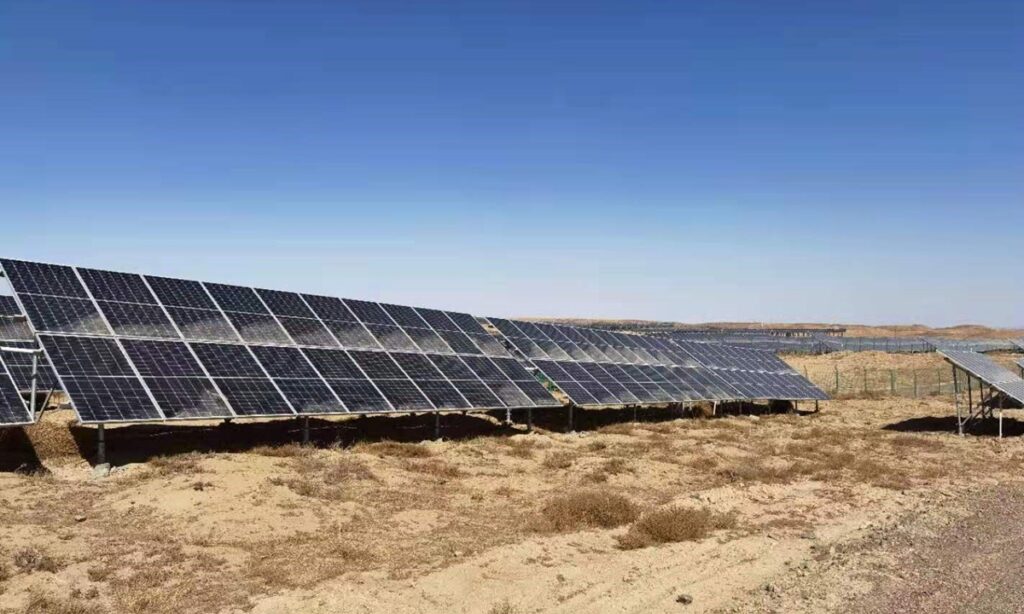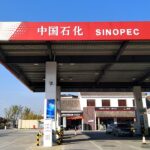Ill-intended move will backfire, hurt market confidence: insiders
Chinese photovoltaic (PV) industry insiders have expressed concern over Indian authorities’ anti-dumping investigation targeting imported solar battery products, of which China is the largest source, saying that the probe will further undermine Chinese companies’ confidence in the Indian market and could backfire on India.
Although the probe includes products from other countries, industry insiders said that it was primarily aimed at Chinese products as part of India’s growing crackdown on Chinese companies amid tensions. However, impact on Chinese firms will likely be limited given Indian’s already shrinking imports from China, analysts said.
After an application from Indian manufacturers, the Directorate General of Trade Remedies under India’s commerce ministry initiated an anti-dumping probe into solar cells, whether or not they are assembled into modules or panels, from China, Thailand and Vietnam, media reports said.
In the application, Indian manufacturers sought the imposition of anti-dumping duties to protect them from the material injuries that they claimed had been caused by such imports at unfairly low price levels, according to the reports.
Rather than hurting Indian businesses, Chinese PV products actually help India, Chinese analysts said.
“Chinese PV products could help India conserve energy, reduce emissions and cope with climate change. In a spirit of cooperation, we hope the Indian government could properly handle the issue,” Liu Yiyang, deputy secretary general of the China Photovoltaic Industry Association, told the Global Times on Tuesday.
Industry insiders said that India regards China as a rival and has been restricting Chinese products for political purposes – a strategy that is likely behind the probe because China’s PV sector is the most advanced in the world and its exports is the largest.
But such ill-intended move by the Indian side is doomed to fail, as China’s PV sector has formed a complete, vertically integrated industry chain that runs from silicon production to installation capacity, a manager with a leading Chinese PV company told the Global Times on condition of anonymity.
India imported 5.7 gigawatts of PV modules from all sources in 2020, according to new energy information provider Gessey. The top five exporters to India in terms of module volume during the year were Chinese enterprises such as LONGi Green Energy Technology and JinkoSolar.
“Such policies by India will certainly affect the confidence of Chinese enterprises in their exports to the Indian market, which is a double-edged sword for both sides,” the source at the large PV company said. If India hikes tariffs, Chinese exporters would be forced to raise prices, which could eventually be passed on to customers in India.
India mainly imports polycrystalline, low-cost and low-end PV products from China, as it prioritizes price, an industry observer who preferred to remain anonymous told the Global Times. “Overall, India would suffer more losses as there is no substitute for Chinese PV products so far,” the observer said.
Meanwhile, the actual impact on the Chinese companies would be very limited, given the small proportion that the Indian market takes in the Chinese PV sector’s global sales.
India accounted for around 7.5 percent of China’s total PV module exports in 2019 but dropped to 3.9 percent in 2020 amid the epidemic, according to the China Photovoltaic Industry Association.
However, India’s constant targeting of Chinese PV companies may also have another unsaid purpose – which is to force Chinese PV companies to invest in India, the observer said.
India’s power and renewable energy minister Raj Kumar Singh announced in December 2020 a plan to impose new tariffs on imports of solar cells and modules from April 1, 2022, involving a basic customs duty of 40 percent on modules and 25 percent on solar cells as part of a so-called self-reliant India strategy, Bloomberg reported in December last year.
The customs duty will replace a 15 percent safeguard duty that is being imposed on imports from China and Malaysia.
Agriculture and PV integrated industrial base Photo: Courtesy of Huawei



